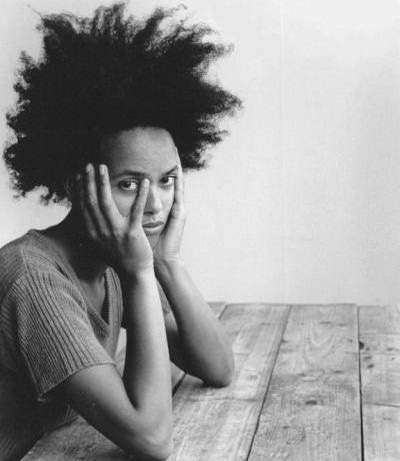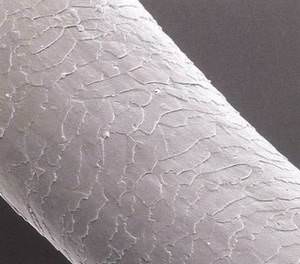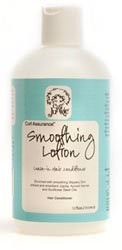 If you asked Stevie Wonder what he would consider to be the ebony and ivory of hair care he would probably say protein and moisture or he would call security to get rid of this strange person asking him such a crazy questions.
If you asked Stevie Wonder what he would consider to be the ebony and ivory of hair care he would probably say protein and moisture or he would call security to get rid of this strange person asking him such a crazy questions.
All jokes aside, if you master the balance between protein and moisture for your hair you are well on your way to a successful healthy hair journey.
We have talked about the disadvantages of over moisturizing your hair before, but what about if you are on the other side of the coin and you are suffering from too much protein in your hair? It is possible for anyone to experience protein overload, it just depends on your hair.
Your protein needs might be far different from mine depending on if your hair is relaxed, fine, has color, is over processed or under processed, loves protein or hates it.
The point is no two heads are the same therefore you will need to become an expert at being able to identify the problem in your own hair and fixing it.
Why Is Protein Important?
A protein called keratin is the building block of hair, so when the strand is damaged you have to use protein to fix it.
Damage can happen as a result of anything from finger twirling your hair too often to a full blown chemical treatment, but regardless of what causes the breakdown, only protein can rectify the situation.
How Much Is Too Much? Identifying Protein Overload
We could simply identify protein overload by saying that “if your hair feels dry then more than likely you have it”. But it is not quite that simple. Black hair is naturally dry hence why we spend most of our time trying to avoid normal dryness by moisturizing our hair often and being diligent with our regimens.
You need to know the difference between what is considered normal dryness versus the extreme dryness that protein overload causes. Since the identifiers for protein overload mimic the identifiers of dryness caused by lack of moisture, the best way to identify it is by the checking a few factors. These are all symptoms of protein overload:
 ► Hair that snaps apart immediately when doing the strand strength test.
► Hair that snaps apart immediately when doing the strand strength test.
► Hair that feels unusually dry and brittle.
► Hair with no shine (when it usually does).
► Hair that feels hard even when wet especially after a protein treatment.
► Hair that tangles easily.
► Hair that feels stiff or straw like in spite of moisturizing.
It is absolutely imperative that you fix protein overload as quickly as you can, because ignoring it is a disaster waiting to happen.
How To Fix Protein Overload
The steps to fixing the protein overload are pretty easy, your focus should be one thing and one thing only; moisture. There are a few options to fixing protein overload and depending on the degree of the problem you may have to try one or all the options listed below and repeat them for a couple of weeks before you see an improvement.
Clarify your hair – Clarifying will remove any excess buildup giving you a clean slate to work with. It also starts the process of removing the excess protein from your strands. You can choose to use a clarifying shampoo* or you can go au-naturale and use apple cider vinegar* as your clarifier of choice.
Deep condition – Plan to use heat as you condition and use a deep conditioner that has no protein in it. If you have to get in the kitchen and make one yourself then by all means do so but use something that will give your thirsty strands the moisture it needs. Honey and avocado are a good place to start.
Steam – If there was ever a time to invest in a steamer this is it. Plain steam will infuse moisture into your strands better than the dry heat from a hooded dryer. Coat your hair generously with a moisturizing conditioner* or an oil of choice then sit under the steamer for 30 minutes. Repeat this weekly until your hair’s balance is restored.
 Leave a moisturizing conditioner* in overnight – Sometimes an overnight moisture treatment may be able to correct the problem and allow your hair to regain the balance it needs. Just apply the conditioner, wrap your hair in saran wrap then head to bed.
Leave a moisturizing conditioner* in overnight – Sometimes an overnight moisture treatment may be able to correct the problem and allow your hair to regain the balance it needs. Just apply the conditioner, wrap your hair in saran wrap then head to bed.
Use a moisture based leave in* conditioner – Avoid any leave in conditioners with protein, amino acids, hydrolyzed silk or anything ‘strengthening’. Apply your leave in every day throughout the week and seal it in with your favorite oil.
Depending on how bad the protein overload is, you may have to do this for a few weeks until your hair feels better and normal elasticity is restored.
Avoiding Protein Overload Alltogether
No one can create a perfect regimen with absolutely no setbacks simply because we are human. It is perfectly normal to make a few mistakes here and there, but by dealing with minor setbacks immediately and decisively you can avoid a minor incident turning into a full blown major setback.
To prevent protein overload happening in the first place the best place to start is an evaluation of the products that you are currently using paying close attention to the ingredients.
For example if you decide to use a protein deep conditioner* this week, check to ensure that the other products that you use within that session do not have protein in them as well. This includes leave in conditioners, some oil mixes or finishing serums.
If you deep condition regularly alternate between a moisture based deep conditioner* one week and a protein based deep conditioner the next. If your hair does not react very well to protein you may be best off having it in your regimen just once a month or once every eight weeks.
Additionally do not assume that because you have a relaxer or color you must use an excessive amount of protein to avoid breakage and splits. Even though your hair might require more protein than hair that has not been chemically processed you still have to keep in mind that our hair is naturally dry and it needs a great deal of moisture as well.
Finally, do the strand strength test occasionally on your shed hairs just to make sure your hair has some good elasticity and you are keeping everything balanced.
you need too loc your hair up
I like her hair lol